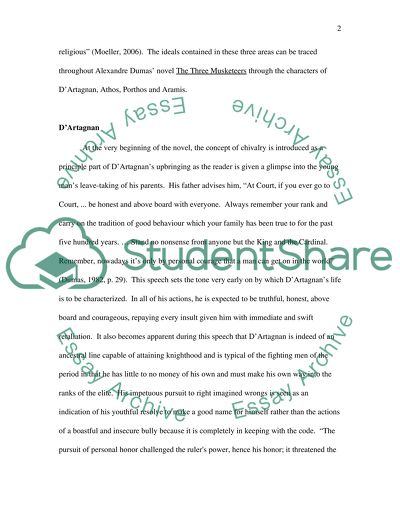Cite this document
(Chivalry Among Men in the Novel The Three Musketeers Book Report/Review, n.d.)
Chivalry Among Men in the Novel The Three Musketeers Book Report/Review. Retrieved from https://studentshare.org/literature/1537593-chivalry-among-men-in-the-novel
Chivalry Among Men in the Novel The Three Musketeers Book Report/Review. Retrieved from https://studentshare.org/literature/1537593-chivalry-among-men-in-the-novel
(Chivalry Among Men in the Novel The Three Musketeers Book Report/Review)
Chivalry Among Men in the Novel The Three Musketeers Book Report/Review. https://studentshare.org/literature/1537593-chivalry-among-men-in-the-novel.
Chivalry Among Men in the Novel The Three Musketeers Book Report/Review. https://studentshare.org/literature/1537593-chivalry-among-men-in-the-novel.
“Chivalry Among Men in the Novel The Three Musketeers Book Report/Review”. https://studentshare.org/literature/1537593-chivalry-among-men-in-the-novel.


